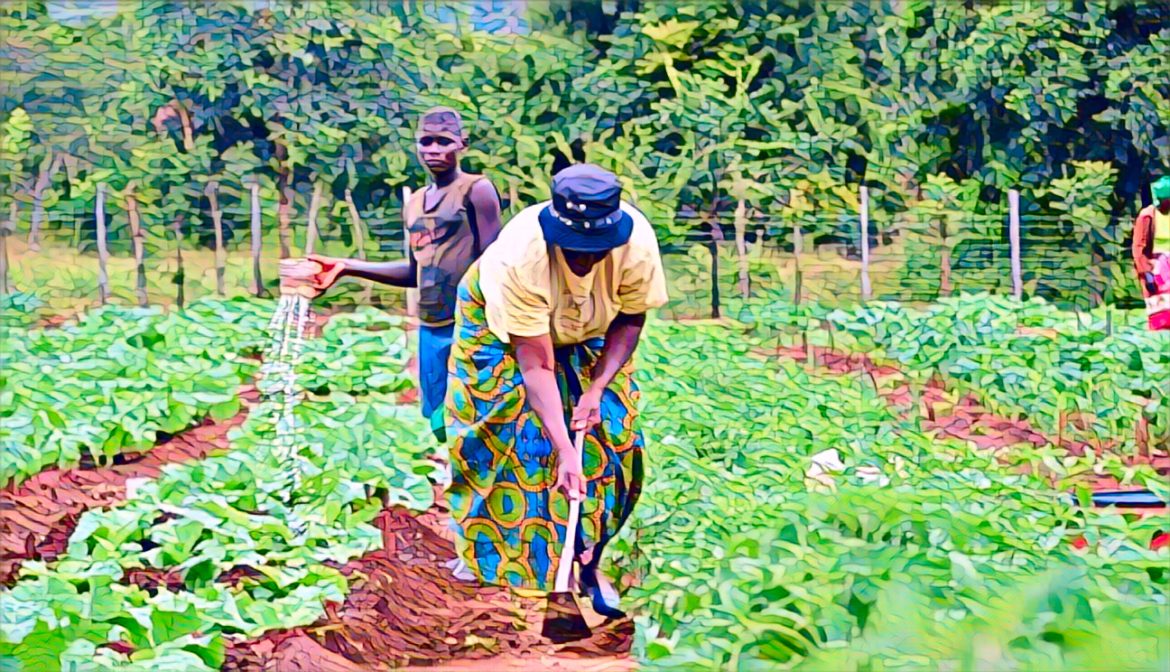Key Points
- Sustainable farming ensures food security and boosts farmer livelihoods.
- Smart farming technologies increase productivity while reducing costs.
- Climate-smart agriculture helps farmers adapt to extreme weather changes.
Agriculture is essential to Nigeria’s economy, greatly impacting GDP, employment, and food security. Traditional agricultural methods encounter issues such as soil degradation, over dependence on chemical inputs, and climate change, all of which jeopardize productivity and sustainability.
Comprehending the significance of sustainable agriculture in Nigeria
Sustainable agriculture provides a resolution by harmonizing environmental conservation, economic development, and social welfare.
It emphasizes the conservation of natural resources, mitigates pollution, and fosters resilience to climate disturbances. In Nigeria, where millions depend on agriculture for their sustenance, sustainable methods offer a means to achieve food security, enhance farmer earnings, and safeguard the environment.
According to FAO, Nigerian farmers can lower production costs, enhance soil fertility, and reach new markets for organic and sustainably produced items by implementing sustainable agricultural practices.
Essential strategies for implementing sustainable agriculture in Nigeria
Various measures can facilitate sustainable agriculture in Nigeria. These initiatives seek to safeguard soil integrity, conserve water resources, preserve biodiversity, and utilize contemporary technology for enhanced efficiency.
Effective soil management is essential as soil vitality is fundamental to successful agriculture. Agriculturists can enhance soil fertility by crop rotation, the cultivation of cover crops, and the use of compost or organic manure.
The preservation of biodiversity underpins natural ecosystems vital for agriculture. Intercropping promotes biodiversity, while safeguarding pollinators such as bees enhances agricultural yields.
Technology and precision agriculture are also revolutionizing farming in Nigeria. Drones, sensors, and mobile applications enable farmers to assess soil health, meteorological conditions, and pest activity instantaneously.
Addressing obstacles to sustainable agriculture in Nigeria
Implementing sustainable farming in Nigeria encounters numerous hurdles, including insufficient funding, inadequate knowledge, ineffective policies, and difficulties in market access.
Financial limitations provide a significant obstacle, particularly for smallholder farmers who are deprived of loan access. The government, financial institutions, and non-governmental organizations should offer grants, loans, and subsidies to enhance the accessibility of sustainable agriculture.
A deficiency of information and awareness constitutes an additional challenge. Agriculturists may lack comprehension of sustainable techniques or recognize their advantages.
Extension services, awareness initiatives, and training programs can mitigate this knowledge deficit. Agricultural extension officers are essential in instructing farmers on sustainable methods.
According to World bank, climate-related hazards, like floods and droughts, exacerbate agricultural challenges. Farmers ought to implement agroforestry, cultivate drought-resistant crops, and utilize water-efficient irrigation to mitigate weather-induced disturbances.
Sustainable agriculture is crucial for Nigeria’s future. It tackles the environmental, economic, and social issues confronting the agriculture sector.
Investing in sustainable agriculture constitutes an investment in Nigeria’s future. It will mitigate environmental damage, provide food security, and enhance farmer incomes. By endorsing climate-smart agriculture, fostering biodiversity, and implementing advanced farming technologies, Nigeria can spearhead sustainable agriculture for a healthier, more secure, and economically robust future.


